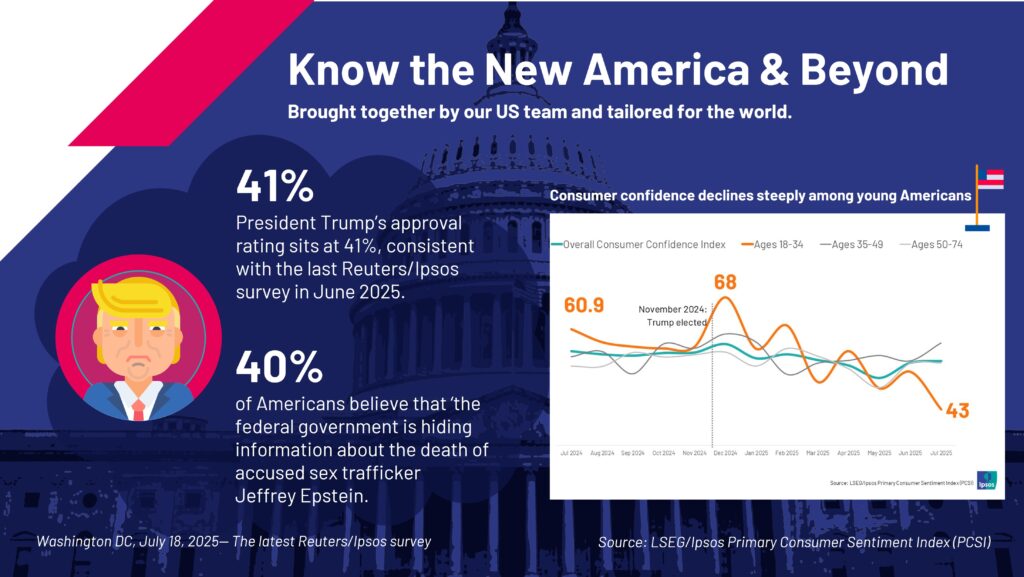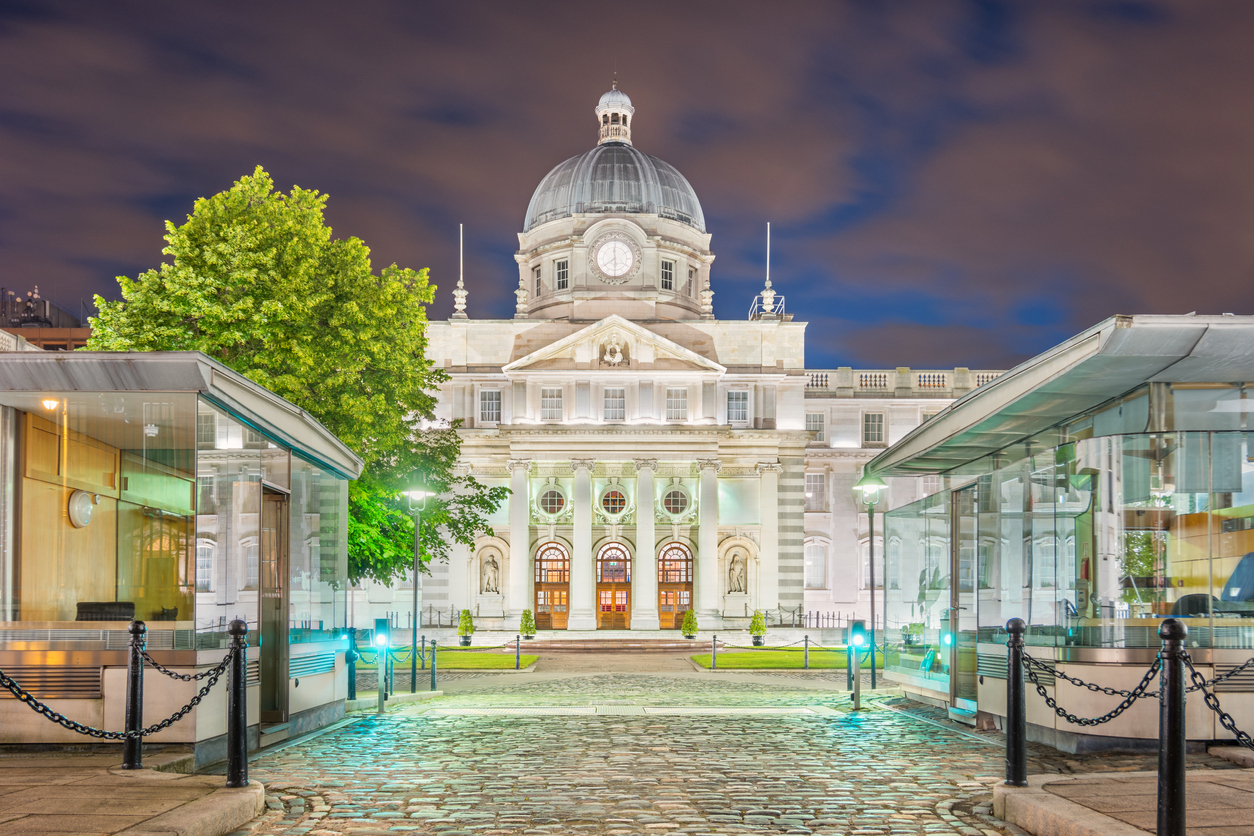“If you ride the tiger, you may be afraid to dismount” — Donald Trump’s recent problems with conspiracy theories around accused sex trafficker Jeffrey Epstein highlight this. Most Americans — of whatever party — now believe something is being hidden from them, and for the first time in this presidency, his base doesn’t support him on an issue. At the same time, Trump’s ratings, low by historical standards, remain several points higher than at this stage of his first term.
Trump has survived numerous crises, but concerns in the U.S. are moving from the economy, an area of strength for Republicans, to issues like political extremism and threats to democracy, where neither party has a clear advantage.
Although Trump paused tariffs after markets reacted, they are now being implemented. While many Americans see potential long-term benefits for U.S. jobs, more are worried about the immediate negative impacts. Globally, four out of ten people say they try to avoid buying American products, including six out of ten Canadians.
Consumer confidence declines steeply among young Americans

In most countries around the world, concern about inflation remains the No. 1 personal concern, despite falling interest rates, because the post-COVID inflation surge is still a recent memory. In the U.S., consumer confidence, which had surged among younger Americans after Trump’s election, is now in steady decline. So far, many producers have stockpiled or taken the pain of tariffs themselves — but will not be able to do so forever. New data from the Ipsos Consumer Tracker shows that consumers are noticing ongoing changes: The number of Americans who say they’re seeing discounts in stores has dropped 10 percentage points in the past year, to 38% today.
To understand all that’s happening in America, you must understand the American Dream — a concept that’s traveled around the world to inspire generations of immigrants. But what is the future of the Dream in the new America? Our latest research shows that the American Dream remains a set of largely shared ideas around freedom, success, opportunity and fairness, across demographics and bridging party divides. Yet looking to the future, 61% of younger Americans now feel the Dream is unattainable — reflecting the widespread “loss of the future” many European, Japanese and Latin American societies are also grappling with, with all the political upheavals that result from it.
Most first- or second-generation Americans (79%) say they or their families migrated to the U.S. because of the American Dream, and now immigration is a key focus for Trump’s administration. But new Ipsos polling shows that his approval on the issue has fallen amid controversial immigration raids around the U.S.; 41% of Americans today approve of how he is managing immigration, compared to 48% in January, according to a Reuters/Ipsos poll.
America’s new reality is still emerging and contested — we are in a period where it is clear the old consensus is broken, and leaders everywhere are searching for a new one. Read on for more and don’t hesitate to contact us if you want to dig a little deeper before next month’s roundup.

Author: Ben Page, CEO, Ipsos
For more information please contact Larry Ryan: larry.ryan@ipsos.com









